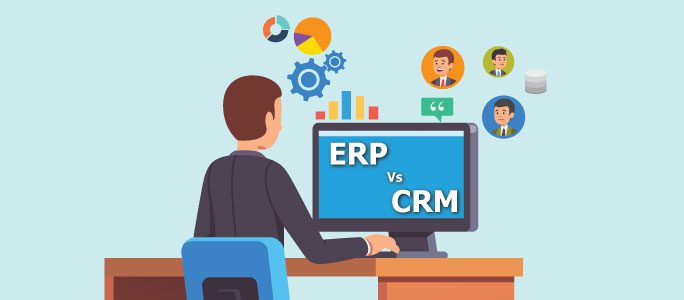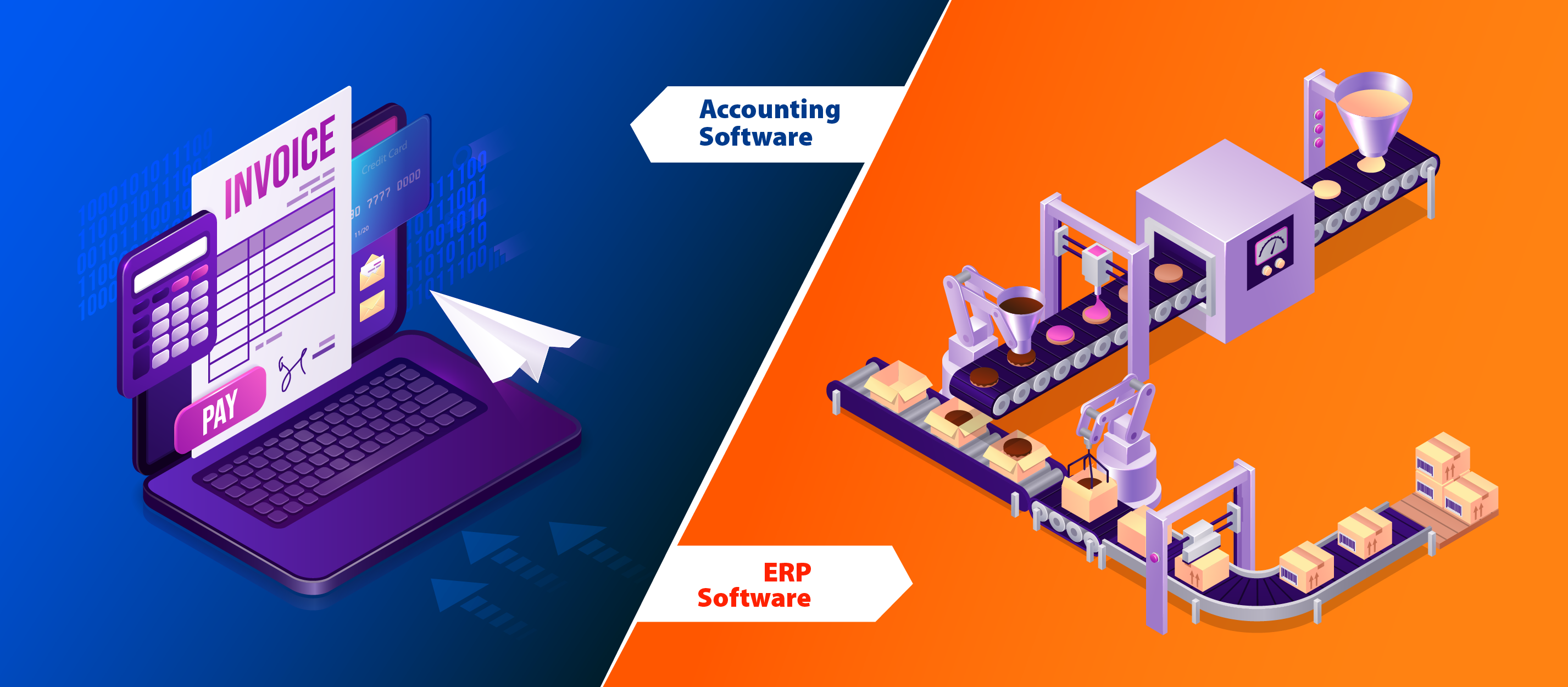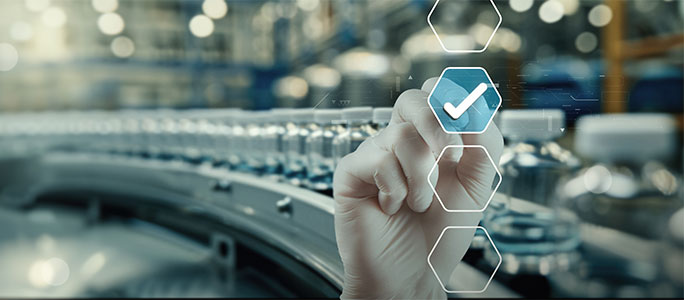Businesses that are looking to add a business management software to their organizational set-up often get to hear about two software solutions in particular- enterprise resource planning (ERP), and customer relationship management (CRM).
And when it comes to picking one between the two, they do get confused, because the two are similar in many ways.
Though having different core functionalities, both ERP as well as CRM share same objectives of increasing the overall profitability, efficiency, and productivity of the organization.
Both these software focus mainly on revenue generation, and automation, and are in a way two sides of the same profitability coin.
However, as we discussed that the two have different core functionalities, and methods to reach to their end objective, it is important for the businesses to view ERP and CRM software as isolated systems that are stand-alone.
This way, it becomes easier for the businesses to figure out the individual role both these systems play in improving efficiency and increasing sales of the organization, or to put simply, it becomes easier for the businesses to differentiate between ERP and CRM software.
Through this blog, we shall take a closer look at what is ERP and CRM software, and how the two software are different, so that you can decide which one is more suited to your business’ needs.
What is ERP?
A business management tool, ERP software allows businesses to collect, store, manage and interpret data from their different functions such as CRM, accounting, supply chain, manufacturing, human resources, inventory, procurement, marketing & sales, planning etc., to provide a unified solution.
By integrating all these functions, an ERP streamlines the operations and centralizes the information, thus improving the efficiency of the business processes by facilitating flow of standardized information throughout all departments.
Now the employees can enter information into the ERP system, and get to know about the problems in any area of the business in real-time, and fix it proactively.
Today, the majority of the ERP systems available in the market are customizable or configurable, and allow users to add modules or functionality that meet their unique business needs.
An ERP software comes equipped with the tools that can handle both the front as well as back-office operations, and by creating a smooth coordination between the two, can improve internal communication and data exchange.
ERP can be on-premise, on Cloud, and even hybrid, and can serve all functions of businesses of all types and sizes.
Streamlined processes, improved productivity & efficiency, enhanced business visibility, better quality, informed decisions, reduced costs & risks, and adherence to industry & regulatory compliance, etc. are some of its benefits.
What is CRM?
CRM is a set of practices and strategies which along with the use of technology offers the sales, marketing, and research functions of a business a way to collect, store, manage, and analyze the prospect/lead/customer data throughout the sales life cycles.
In simple words, CRM is a system for recording and storing all the data related to prospect/lead/customer interactions- starting from opportunity to lead generation, requirement sharing, samples sent, approval/feedback received, finally conversion as customers.
In between holding all the communications done with them, reasons a lead was lost/won, competition’s strength and weakness the and much more.
It offers the businesses a standardized method for collecting the customer data and sharing it throughout the business.
The core objective of a CRM system is to improve sales as well as customer satisfaction, whether it’s through improved targeting or tailored sales communications.
A front-office tool, CRM is usually used by the sales and marketing people within the organization, to increase revenue through an improvement in responsiveness.
It can be used to create sales projections, to maintain contact with clients, to verify delivery addresses, and also to create invoices.
It is available either as standalone software, or as part of an ERP solution.
A CRM system enables businesses to automate and manage marketing campaigns and other redundant tasks, analyze purchasing patterns, offer high-quality customer support, identify new leads, streamline the sales process, etc.
What is the difference?
So, now we know what is ERP and CRM software. But what are the differences between the two? Prima facie, both ERP and CRM software appear similar in effect.
But they adopt different approaches to increase profits. While ERP works on reducing the overhead costs by making business processes more efficient, CRM focuses on increasing profits by generating greater sales.
With a standardized repository of customer data, it helps improve customer relations, and in turn translates them into increased profits.
Also, CRM focuses on the management of customer relationships with the enterprise, while an ERP CRM software emphasizes on managing the different functions of the business including CRM. So, in a way, CRM is a subset of the ERP.
ERP software can facilitate business processes across many different workflows, which means that if you are looking to invest in systems that will benefit finances, warehouse and other operations, an ERP software is what you need.
CRM, on the other hand, is a more tailored solution. Ultimately, the most important differentiating factor that separates the two is the scope.
ERP or CRM software – what does your business need?
As a business, you can have different needs and priorities. If all that matters to you is the CRM functionality, and there’s absolutely no need for streamlined operations in other business areas such as finance, supply-chain, and distribution, a standalone CRM software may be your best bet, as its features are specifically designed to meet this particular need, and are better than the CRM functionality of an ERP.
Similarly, if in future you plan to implement a solution that facilitates workflows aside from CRM, you might consider an ERP because of its centralized data source and connected business processes.
However, ideally, choosing between ERP and CRM software for your business is like choosing between two body organs essential for survival.
Quite naturally, a business needs both ERP and CRM, and integration of the two can benefit the business in many ways.
By integrating the two systems, businesses enjoy benefits such as faster sales cycles, less downtime, and waste reduction, less friction within the business, accurate quotes through greater visibility into company’s inventory and costs, reduced duplication and increased knowledge sharing, and better forecasting and more accurate planning, among other things.
However, many ERPS possess CRM module too, and that’s the best bet you can take as it keeps you away from the hassles of integration and its side effects.
As a result, businesses succeed in creating a great end-to-end experience for the customers, and giving them value at all times.
To sum up
In a nutshell, companies need both an ERP and a CRM software to maximize business growth. While a CRM system drives a business by increasing the sales and improving the profits, an ERP system helps streamline operations and reduce overall costs.
The good news is that you don’t need to choose between one and the other, as you can have the best of both worlds- with BatchMaster. Contact us now to know more about how we can take your business to greater heights.



















